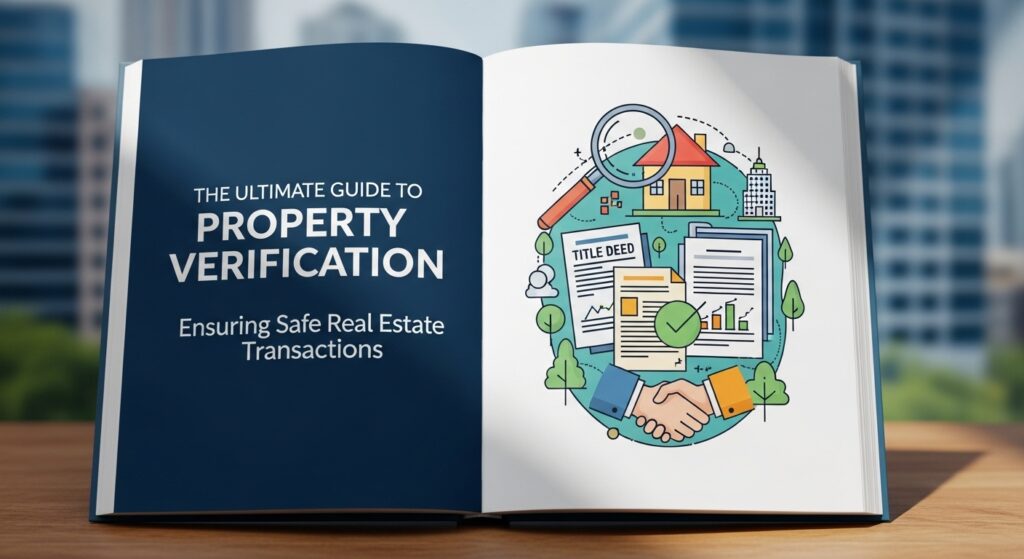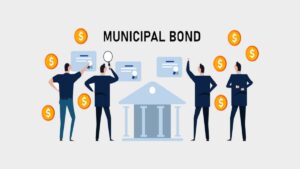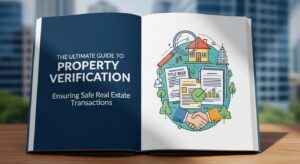
Buying or investing in property is one of the most significant financial decisions you can make. However, the excitement of owning a new home or commercial space can be overshadowed if due diligence is not performed. One of the most crucial steps in this process is property verification, which ensures that the property you are about to buy is legitimate and free from legal disputes.
In this blog, we will explore the importance of property verification, how property document verification works, and the role of a property verification lawyer in securing your investment.
What is Property Document Verification?
Property document verification is the process of examining all legal documents related to a property to confirm its authenticity, ownership, and legality. This step is crucial because purchasing a property without proper verification can lead to legal complications, financial losses, or even losing the property.
Key Documents to Verify
- Title Deed: Confirms the ownership of the property.
- Sale Deed: Details the sale and transfer of ownership from the seller to the buyer.
- Encumbrance Certificate (EC): Ensures that the property is free from any legal or financial liabilities.
- Property Tax Receipts: Confirms that the seller has paid all applicable taxes.
- No Objection Certificates (NOC): Required from authorities such as housing societies, banks, or local municipal bodies.
- Building Plan Approval: Ensures the property complies with municipal regulations.
Property document verification is not just about checking papers—it is about securing peace of mind and avoiding potential disputes in the future.
Why You Need a Property Verification Lawyer
A property verification lawyer is a legal expert who specializes in scrutinizing property documents and ensuring that every legal aspect of a transaction is sound.
How a Property Verification Lawyer Helps
- Legal Expertise: They can detect any discrepancies or forged documents that a layperson might miss.
- Title Verification: Ensures that the seller has the legal right to sell the property.
- Due Diligence: Checks for any unpaid dues, mortgages, or ongoing litigation related to the property.
- Contract Drafting: Helps draft sale agreements and other contracts to protect the buyer’s interests.
- Liaison with Authorities: Coordinates with municipal offices, banks, and registrars to confirm authenticity.
Hiring a property verification lawyer significantly reduces risks, making your property transaction smooth and legally secure.
Benefits of Property Verification
- Avoid Legal Disputes: Ensures there are no pending lawsuits or claims on the property.
- Secure Financial Investment: Protects you from losing money due to fraudulent sales.
- Peace of Mind: Gives confidence that your property ownership is legally safe.
- Smooth Transaction: Reduces chances of post-sale complications.
Conclusion
Investing in property is a long-term commitment, and skipping property verification can lead to severe consequences. Conducting thorough property document verification with the assistance of a property verification lawyer ensures that your investment is safe, legal, and hassle-free.
Always remember: in real estate, precaution is better than regret. By taking the right legal steps upfront, you secure not just a property but peace of mind for years to come.
Frequently Asked Questions
1. What is property document verification?
Property document verification is the process of checking all legal documents related to a property, such as title deeds, sale deeds, and encumbrance certificates, to confirm ownership and ensure the property is free from legal disputes.
2. Why is property document verification important before buying a property?
Property document verification is essential to avoid legal issues, prevent financial losses, and ensure that the property is genuine and has no pending dues or claims.
3. Which documents are verified during property verification?
Key documents include the title deed, sale deed, encumbrance certificate, property tax receipts, no objection certificates (NOCs), and approved building plans.
4. How can a property verification lawyer help in buying a property?
A property verification lawyer examines legal documents, confirms ownership, checks for dues or litigation, drafts contracts, and liaises with authorities to ensure a smooth and secure transaction.
5. What is the role of an encumbrance certificate in property verification?
An encumbrance certificate (EC) verifies that the property is free from legal liabilities such as mortgages, loans, or disputes, ensuring a safe purchase.
6. How long does property document verification take?
The verification process can take a few days to a few weeks depending on the complexity of the property documents, pending dues, and approvals from local authorities.
7. Can property verification prevent future legal disputes?
Yes, thorough property verification ensures all legal documents are correct, which significantly reduces the risk of disputes or claims after purchase.
8. Do I need a lawyer for property verification?
Hiring a property verification lawyer is highly recommended because they provide expert legal guidance, detect discrepancies, and protect your investment during the property transaction.
9. What are the benefits of property verification for buyers?
Property verification helps buyers avoid fraud, secure their financial investment, gain peace of mind, and ensure a smooth property transaction without legal complications.
10. Is property verification mandatory in India?
While not legally mandatory, property verification is strongly advised to confirm ownership, check for dues, and ensure a legally safe transaction before buying property in India.




